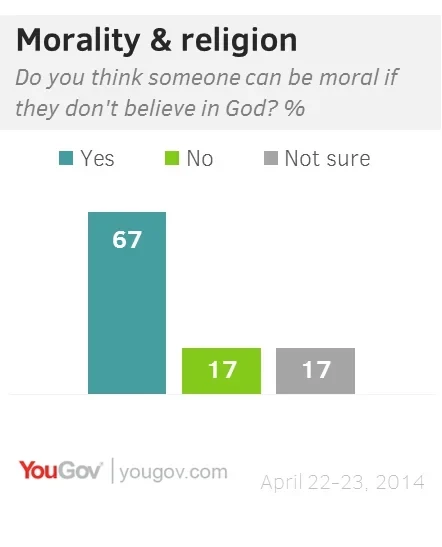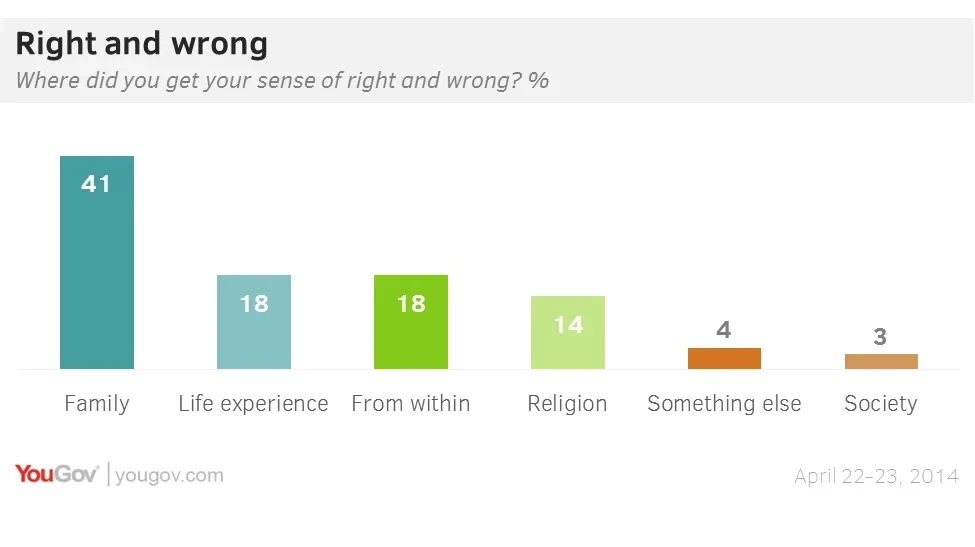Family is the main source of morality in most Americans' lives, while most people say that people who do not believe in God can be moral

The number of people who believe in God is falling in the US, at the same time as the number of people saying that they are atheists is increasing, particularly among young Americans. This rise in disbelief can be troubling for believers and not simply because the ranks of the faithful are thinning. For many religious figures, atheists are incapable of being moral. This might be as simple as saying that atheists are sinful for rejecting God, or more complicated arguments that the inherent materialism of atheism makes objective morality impossible.
YouGov's latest research shows that, for most Americans (67%) it is possible to be moral even if you don't believe in God. 17% aren't sure, while 17% say that people who don't believe in God cannot be moral. Protestants (25%) are more likely than Catholics (16%) to say that non-believers cannot be moral.
In fact, asking Americans how they got their sense of right and wrong shows that only 14% say that it comes from their religion. By far the most popular source of right and wrong is family (41%), following by life experience (18%) and from within (18%). Protestants (48%) and Catholics (44%) chose 'family' as the major source of right and wrong, but among agnostics and atheists 35% said that their morality came from 'life experience' while 34% said that it came 'from within'. Family came third among this group, at 13%.










